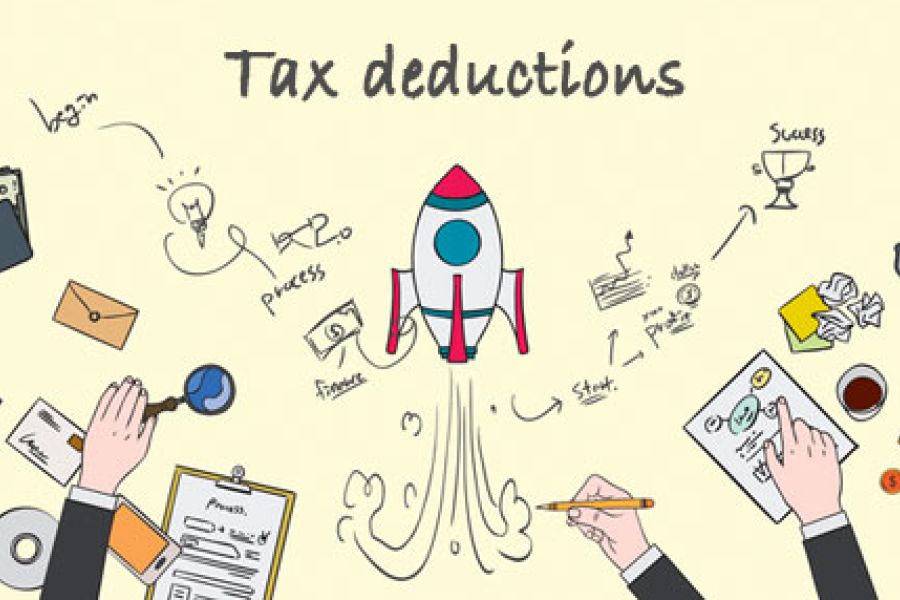If you’re a business owner and you’re getting a divorce, tax issues can complicate matters. Your business ownership interest is one of your biggest personal assets and in many cases, your marital property will include all or part of it. Tax-free property transfers You can generally divide most assets, including cash and business ownership interests, between you and your soon-to-be ex-spouse without any federal income or gift tax consequences. When an asset falls under this tax-free transfer rule, the spouse who receives the asset takes over its existing tax basis (for tax gain or loss purposes) and its existing holding period (for short-term or long-term holding period purposes). Let’s say that under the terms of your divorce agreement, you give your house to your spouse in exchange for...

What if you decide to, or are asked to, guarantee a loan to your corporation? Before agreeing to act as a guarantor, endorser or indemnitor of a debt obligation of your closely held corporation, be aware of the possible tax consequences. If your corporation defaults on the loan and you’re required to pay principal or interest under the guarantee agreement, you don’t want to be blindsided. Business vs. non-business If you’re compelled to make good on the obligation, the payment of principal or interest in discharge of the obligation generally results in a bad debt deduction. This may be either a business or a non-business bad debt deduction. If it’s a business bad debt, it’s deductible against ordinary income. A business bad debt can be either totally...
If your business receives large amounts of cash or cash equivalents, you may be required to report these transactions to the IRS. What are the requirements? Each person who, in the course of operating a trade or business, receives more than $10,000 in cash in one transaction (or two or more related transactions), must file Form 8300. What is considered a “related transaction?” Any transactions conducted in a 24-hour period. Transactions can also be considered related even if they occur over a period of more than 24 hours if the recipient knows, or has reason to know, that each transaction is one of a series of connected transactions. To complete a Form 8300, you’ll need personal information about the person making the cash payment, including a Social Security...
Perhaps you operate your small business as a sole proprietorship and want to form a limited liability company (LLC) to protect your assets. Or maybe you are launching a new business and want to know your options for setting it up. Here are the basics of operating as an LLC and why it might be appropriate for your business. An LLC is somewhat of a hybrid entity because it can be structured to resemble a corporation for owner liability purposes and a partnership for federal tax purposes. This duality may provide the owners with the best of both worlds. Personal asset protection Like the shareholders of a corporation, the owners of an LLC (called “members” rather than shareholders or partners) generally aren’t liable for the debts of the...
Do you play a major role in a closely held corporation and sometimes spend money on corporate expenses personally? These costs may wind up being nondeductible both by an officer and the corporation unless proper steps are taken. This issue is more likely to arise in connection with a financially troubled corporation. Deductible vs. nondeductible expenses In general, you can’t deduct an expense you incur on behalf of your corporation, even if it’s a legitimate “trade or business” expense and even if the corporation is financially troubled. This is because a taxpayer can only deduct expenses that are his own. And since your corporation’s legal existence as a separate entity must be respected, the corporation’s costs aren’t yours and thus can’t be deducted even if you pay...
While Congress develops legislation that would eliminate, and/or otherwise mitigate, the current TCJA implemented state and local tax (SALT) limit on an individual taxpayer's ability to take the itemized deduction for state and local taxes, California has just passed legislation which offers a work-around that will allow many Californians to mitigate the effects of the current $10,000 federal limitation on SALT deductions. On 7/16/2021, Governor Newsom signed into law AB-150, which provides a means by which certain pass-through entities (Qualified Entities) can make an election to pay California income tax (at the entity-level) on behalf of their owners, for which their consent must be given. The benefits yielded could be substantial for pass-through entity owners for which work-around makes sense. Curiously the IRS has approved these...
Despite the COVID-19 pandemic, government officials are seeing a large increase in the number of new businesses being launched. From June 2020 through June 2021, the U.S. Census Bureau reports that business applications are up 18.6%. The Bureau measures this by the number of businesses applying for an Employer Identification Number. Entrepreneurs often don’t know that many of the expenses incurred by start-ups can’t be currently deducted. You should be aware that the way you handle some of your initial expenses can make a large difference in your federal tax bill. How to treat expenses for tax purposes If you’re starting or planning to launch a new business, keep these three rules in mind: Start-up costs include those incurred or paid while creating an active trade or business...
There’s a harsh tax penalty that you could be at risk for paying personally if you own or manage a business with employees. It’s called the “Trust Fund Recovery Penalty” and it applies to the Social Security and income taxes required to be withheld by a business from its employees’ wages. Because taxes are considered property of the government, the employer holds them in “trust” on the government’s behalf until they’re paid over. The penalty is also sometimes called the “100% penalty” because the person liable and responsible for the taxes will be penalized 100% of the taxes due. Accordingly, the amounts IRS seeks when the penalty is applied are usually substantial, and IRS is aggressive in enforcing the penalty. Wide-ranging penalty The Trust Fund Recovery Penalty is...
Are you eligible to take the deduction for qualified business income (QBI)? Here are 10 facts about this valuable tax break, referred to as the pass-through deduction, QBI deduction or §199A deduction. It’s available to owners of sole proprietorships, single member limited liability companies (LLCs), partnerships and S corporations. It may also be claimed by trusts and estates. The deduction is intended to reduce the tax rate on QBI to a rate that’s closer to the corporate tax rate. It’s taken “below the line.” That means it reduces your taxable income but not your adjusted gross income. But it’s available regardless of whether you itemize deductions or take the standard deduction. The deduction has two components: 20% of QBI from a domestic business operated as...
As we continue to come out of the COVID-19 pandemic, you may be traveling for business again. Under tax law, there are a number of rules for deducting the cost of your out-of-town business travel within the United States. These rules apply if the business conducted out of town reasonably requires an overnight stay. Note that under the Tax Cuts and Jobs Act (TCJA) , employees can’t deduct their unreimbursed travel expenses through 2025 on their own tax returns. That’s because unreimbursed employee business expenses are “miscellaneous itemized deductions” that aren’t deductible through 2025. However, self-employed individuals can continue to deduct business expenses, including away-from-home travel expenses. Here are some of the rules that come into play. Transportation and meals The actual costs of travel (for example, plane fare and...











